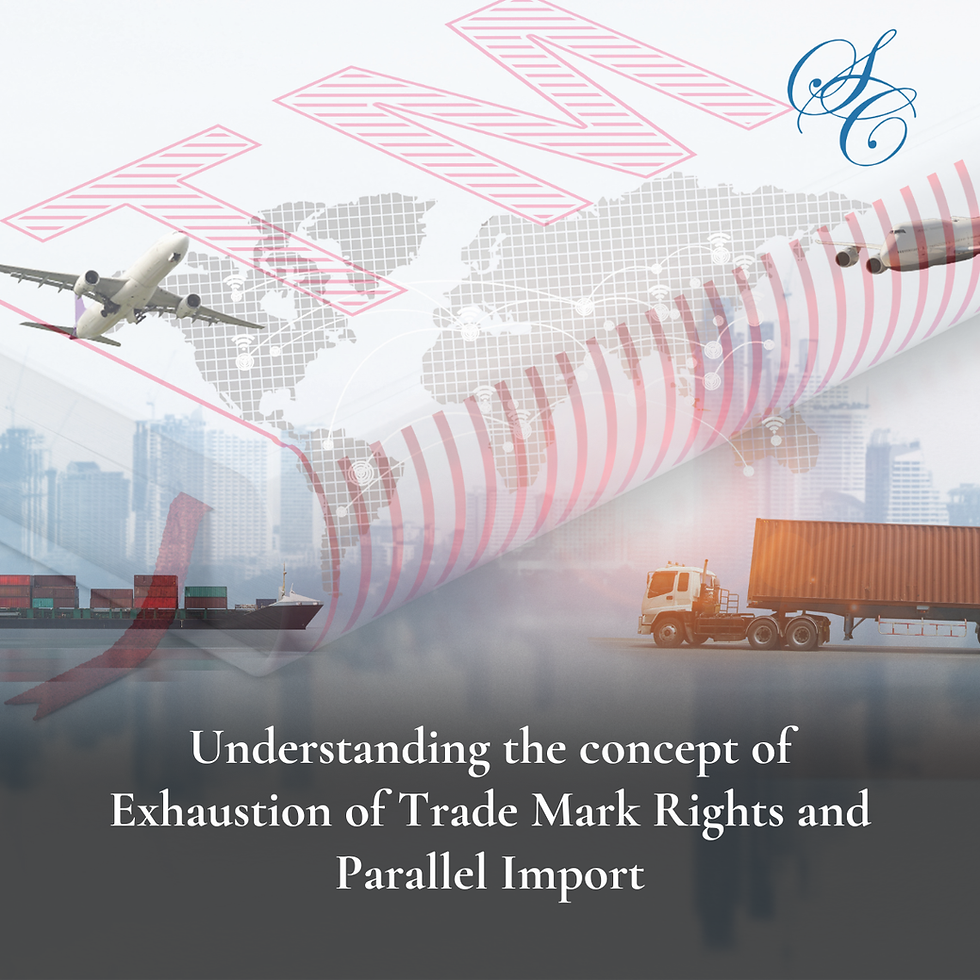INDIA’S SUPREME COURT ON JURISDICTION IN IP MATTERS
- Sarwajeet Singh
- Jul 8, 2015
- 3 min read
IP owners have long preferred the High Court in Delhi for filing lawsuits involving their property. This preference is based on a number of factors, including savvy judges who have long been exposed to intellectual property issues, the court’s willingness to grant ex-parte orders (without a defendant’s appearance) and expertise of lawyers. A very recent judgment rendered by India’s Supreme Court may have whittled down an IP owner’s preference for Delhi. In Indian Performing Rights Society Ltd. v. Sanjay Dalia and others (read judgment here), the court has held that IP plaintiffs cannot engage in forum shopping in cases in which they carry on business in the same jurisdiction in which a cause of action arises. In these cases, the court held, plaintiffs must sue in courts having jurisdiction where they carry on business.
In the case before the court, the plaintiff had a head office in Mumbai and a branch office in Delhi. The defendant owned movie theatres in Mumbai and the allegedly infringing activities occurred in Mumbai. However, the plaintiff sued the defendant in the High Court in Delhi. In so doing, the plaintiff invoked special provisions in the laws on trademarks and copyrights that allow a plaintiff to file a lawsuit in a court within whose jurisdiction it resides or carries on business. The defendant objected to the suit in Delhi. A single bench and a division bench of the Delhi High Court ruled that the suit ought to have been filed at Mumbai. This matter was then referred to the Supreme Court.
The plaintiff put forth the argument that the laws on trademarks and copyrights confer a special right on rights owners by allowing them to file suits where they carry on business without any regard to where the cause of action might have arisen. The plaintiff sought to read this special right independently of a provision in India’s civil procedure code under which a plaintiff is required to file a lawsuit where the defendant resides or does business or where the cause of action arises. In fact, according to the plaintiff, the legislature introduced this special right in India’s trademark and copyright laws so as to make it convenient for a plaintiff to approach a court that has jurisdiction where he does business and without needing to travel far in order to safeguard his rights. In support of its arguments, the plaintiff put forth numerous judgments that had allowed parties to file suits where they carried on business.
The defendant argued that the special provision in the trademarks and copyright laws could not be read without a consideration of legislative intent. The legislature could not have intended that a plaintiff could file a suit in order to inconvenience a defendant. Thus, the court needed to correct the law.
The court agreed with the plaintiff that the special provision in the trademarks and copyright laws was enacted to provide parties an additional forum to bring suits so that they are not deterred from instituting infringement proceedings because “the court in which proceedings are to be instituted is at a considerable distance from the place of their ordinary residence”. However, the court observed that the intent of this provision was not to drag the defendant further away from such a place.
Holding for the defendants, the court, distinguishing each and every case the plaintiff had put forth to support its position, stated that when a plaintiff carries on business at a place and the cause of action also arises at that place, the plaintiff must bring a suit at that place. It cannot file in another jurisdiction where the cause of action has not arisen.
Undoubtedly, by linking the special provision in India’s trademarks and copyright laws to the cause of action, the court has whittled down the scope of the special provision. However, the court was dealing with a specific set of facts, namely, that the plaintiff’s head office was located in Mumbai and the cause of action also arose in Mumbai. The court found that the branch office in Delhi did not confer jurisdiction on the Delhi High Court. Thus, in cases in which a plaintiff does business in a particular city, but the cause of action does not arise in that city, a plaintiff could sue in the city in which it does business.
How this judgment plays out in future IP cases must be watched!




Comments